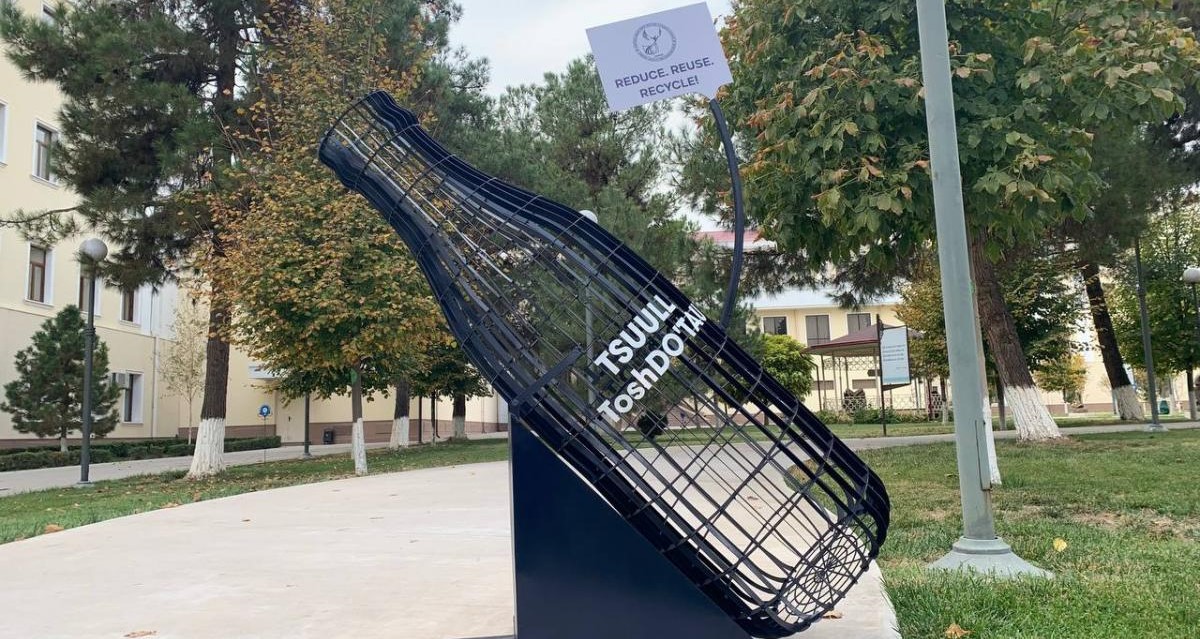
Uzbekistan is affected by climate change in the same way as the rest of the world. Our efforts to mitigate climate change will be directly supported by reducing waste and implementing a Circular Economy Strategy. To this aim, TSUULL has made being a "Zero Waste University" one of its top national objectives. On the path toward achieving a Zero Waste Nation, everyone has a part to play.
TSUULL regularly establishes and updates programs for waste management to assist university staff and students in evaluating their present waste management procedures and identifying possibilities to reduce, reuse, and recycle waste materials in order to reduce their waste disposal needs. This is in line with the Zero Waste University target.
To create and carry out 3R plans, teachers and staff are assigned to promote 3R practices in their classes and consult the Sustainability Practices Office TSUULL 3R Program when necessary.
What are the 3Rs?
- 1. Reduce: Minimize the amount of waste that needs to be handled or disposed of. Waste should be avoided at the source.
- 2. Reuse: Put something back to use for the same or a similar purpose without materially changing its shape.
- 3. Recycle: Convert waste into reusable materials that may or may not be identical to the original product.
All actions that reduce the amount of garbage disposed of fall within the 3R practices.
The preferred waste management practice is to reduce waste at source. When waste generation cannot be prevented, other options such as reusing and recycling should be considered.
TSUULL Programs to Reduce Plastic and Paper Consumption
To further reduce plastic and paper consumption at the university, TSUULL implements 11 eco-friendly initiatives. Each one supports sustainability, resource efficiency, and environmental awareness across campus.











Together for a Zero Waste Future
Through these 11 programs, TSUULL demonstrates its leadership in sustainable campus transformation. Every small action — refilling a bottle, printing less, or reusing materials — brings us closer to a cleaner, greener, and more sustainable Uzbekistan.
“Sustainability is not a trend — it’s a responsibility.”
